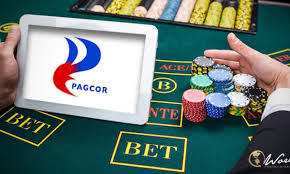The Philippine Amusement and Gaming Corporation, more commonly known as PAGCOR, is one of the most influential government-owned corporations in the country. While most people associate it with casinos and gaming, PAGCOR’s role goes far beyond entertainment. It is a significant driver of national development, contributing billions in revenues to the government while regulating the fast-growing gaming sector.
A Government-Owned Pillar in the Gaming Industry
Founded in 1976, PAGCOR was established during a time when illegal gambling activities were rampant in the Philippines. The goal was simple yet ambitious: to curb unlawful gambling, promote legal gaming, and generate additional funds for national development.
Operating under the Office of the President, PAGCOR is unique in its structure. It is both a regulator and an operator — a rare combination in the global gaming industry. This dual role allows PAGCOR to monitor private licensees while also directly managing government-run gaming facilities.
Casino Filipino and State-Run Operations
PAGCOR operates several casinos under the Casino Filipino brand. These casinos are spread throughout the country and provide a regulated, secure environment for players. Unlike private casinos, profits from these facilities go directly to government coffers, which are then allocated to public services.
The Casino Filipino branches serve not only as entertainment centers but also as tourism hubs that attract both local and foreign visitors, particularly in areas like Manila, Cebu, Davao, and Tagaytay.
Licensing and Oversight
In addition to its own operations, PAGCOR licenses private casinos, e-gaming cafes, poker rooms, bingo halls, and integrated resorts. These operators are required to follow strict compliance measures related to:
- Responsible gaming
- Financial reporting
- Anti-money laundering (AML) laws
- Fair play and transparency
PAGCOR has also played a crucial role in developing the Entertainment City complex in Metro Manila, a massive gaming and leisure hub designed to compete with the likes of Macau and Las Vegas. It is now home to world-class integrated resorts like Okada Manila, City of Dreams Manila, and Solaire Resort & Casino.
Revenue and Social Responsibility
One of PAGCOR’s key contributions lies in how it channels gaming revenues into public use. A substantial portion of its profits is remitted to the National Treasury, while the rest goes to:
- Infrastructure and socio-civic projects
- Health and education initiatives
- Disaster response and emergency aid
- Contributions to the Philippine Sports Commission and Board of Claims
In 2023 alone, PAGCOR contributed tens of billions of pesos to government projects, placing it among the top-performing government-owned and controlled corporations (GOCCs).
The Rise of POGOs and Online Regulation
To keep up with global trends, PAGCOR has also entered the online gaming space by regulating Philippine Offshore Gaming Operators (POGOs). These are foreign-facing gaming companies that base their operations in the Philippines, targeting international users.
However, this move has sparked debate due to legal, ethical, and security concerns. In response, PAGCOR has tightened oversight, strengthened background checks, and introduced stricter licensing requirements for POGOs to protect the integrity of the country’s gaming industry.
Promoting Responsible Gaming
PAGCOR is deeply involved in responsible gaming initiatives. It supports exclusion programs for individuals struggling with addiction and provides training to casino staff on identifying and helping at-risk players. PAGCOR also runs public awareness campaigns to educate people about the risks of gambling and the importance of setting limits.
Looking Ahead
As gaming technology continues to evolve, PAGCOR faces new challenges and opportunities — from the expansion of mobile betting platforms to the integration of blockchain in gaming. The agency has shown signs of adaptability, exploring modernization efforts to stay relevant in an increasingly competitive industry.
With transparency, strict regulation, and continued reinvestment into Filipino communities, PAGCOR is more than a gaming regulator — it’s a key player in national development.
Final Thoughts
In a country where public funding is often limited, PAGCOR serves as a valuable financial engine. Through its regulation of gaming activities and strategic investments in public welfare, it demonstrates how a well-managed gaming authority can contribute positively to society.
Whether through infrastructure, education, or health programs — PAGCOR helps turn gaming into growth.

